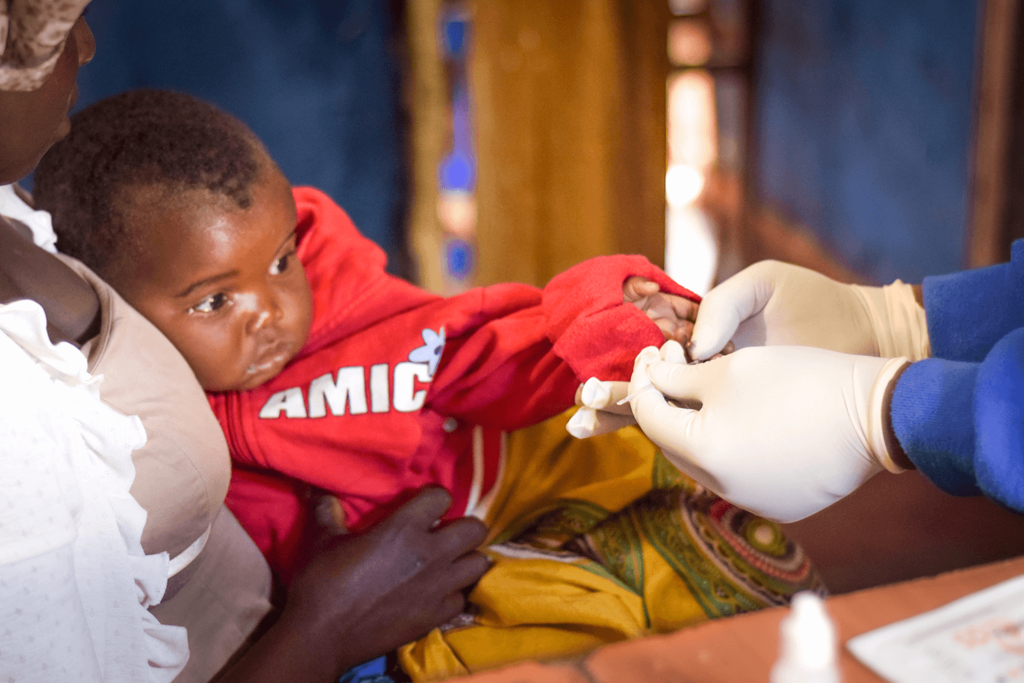Leading Voices: Defeating Malaria is Everyone’s Responsibility
Leading Voices: Defeating Malaria is Everyone’s Responsibility

Meet Hortense Kossou, Principal Technical Advisor for the USAID-funded Integrated Health Services Activity (IHSA) in Benin. Hortense previously served as the national malaria coordinator for the Ministry of Health in Benin and today leads IHSA’s malaria-related activities on the ground. In this issue of Leading Voices, she presents the challenges that the country faces in its fight against malaria and the actions being taken to combat it.

Malaria is the leading cause of mortality among children under five and morbidity among adults in Benin. How has the landscape changed since you first began working at the MOH in 1997?
There have been many changes between the 1990s and today. The Ministry of Health has implemented the newest technological innovations: for example, it has gone from providing untreated mosquito nets to providing long-lasting, insecticide-treated nets. Changes were also made to increase access to these products. Nets were first provided only to the most vulnerable groups, such as children under five; nowadays, there is broader coverage that includes all members of the population.
I should also mention the implementation of intermittent preventive treatment in pregnancy, a full therapeutic course of antimalarial medicine given to pregnant women at routine antenatal care visits, as well as seasonal malaria chemoprevention campaigns that target children under five in areas of highly seasonal transmission during the malaria season.
Finally, the launch of Roll Back Malaria has also brought a number of important changes to the fight against malaria as it has fostered better coordination between the different actors (the United Nations and NGOs, but also universities and the entomological center of Cotonou). These actors work collectively on three different areas: communications, prevention, and monitoring cases.
All these measures made a number of achievements possible: the percentage of people who possess mosquito nets, for example, has skyrocketed from 25% to 85% between 2006 and 2017, according to the 2017-2018 demographic health survey.
What are some of the key challenges specific to malaria in Benin?
These achievements can’t hide the fact that the country is still facing various challenges. The 2017-2018 demographic health survey showed that the increase in availability and possession of mosquito nets didn’t result in an increase in use. Benin is facing behavioral challenges that need to be better analyzed so that we can understand the underlying issues and help households use nets appropriately.
At the same time, there is also a significant problem regarding the services people receive as well as the use of resources. Benin has adopted rapid diagnostic tests to detect malaria cases so that they can be treated promptly. However, a recent study revealed that only 30% of treated cases were, in fact, malaria cases, resulting in a waste of resources and health workers’ time.
You highlight a critical challenge facing the global malaria response: ensuring that the right skills and tools are effectively used to provide quality malaria-case management at high coverage. Can you describe how IHSA will seek to address this in Benin?
The purpose of IHSA, a USAID-funded project, is to strengthen local capacity for the delivery of high-impact malaria, family planning, maternal and child health, and gender-based violence services in the public sector to reduce maternal, newborn, child, and adolescent girls’ mortality and morbidity. To achieve these objectives, the program puts a strong emphasis on government and citizen engagement in the health sector as well as increased access to data for decision making at the local level. This work will be critical for malaria-related activities: IHSA will focus on prevention activities during prenatal consultations, for example, and communications campaigns to help health workers recognize signs of malaria.
The first results of our baseline study demonstrate clear issues with management of malaria services and have also shown examples of poor implementation of guidelines, lack of decision making after audits, and issues regarding resources and staff skills. Our approach is to provide support to the different department teams with which we work so they can better analyze their own problems and see how they can work in a more autonomous way to improve the quality of services.
The seasonal malaria chemoprevention campaign (SMC) is a key IHSA activity. Could you tell us a little bit more about what this activity will look like and what impact we hope to have?
This campaign targets the northern regions of Benin where malaria is only present during the rainy season. The government and community leaders have a strong interest in SMC, as it is a proven way to reduce malaria cases and mortality for children under five. Each community health worker will have a set number of children that he or she will need to provide with preventive medicines over a period of three days. The expected objective for the National Malaria Control Program, supported by IHSA and other USAID implementing partners, will be to identify every child that is eligible for treatment so that they can all receive preventive treatment during the campaign, with the ultimate objective of saving as many lives as possible.
On April 25, we celebrate World Malaria Day, a critical day to discuss this disease. What, in your opinion, are some of the key strategies and innovations that are being developed that could help us achieve the SDG 3.3 goal of ending the malaria epidemic by 2030?
Any response must be country-driven. To rid the world of malaria, we need an integrated approach that is both well funded and extended in time. In the case of Benin, this means a cross-ministerial approach that involves all executive agencies. It is also essential that we have a better understanding of the epidemiological profile of the country so we can better prevent the transmission of malaria, depending on the prevalence of the disease in each region. Finally, we also need stronger involvement from local implementing partners and the communities themselves, so they can understand the critical role they play in the prevention of malaria and the fight against bad practices.